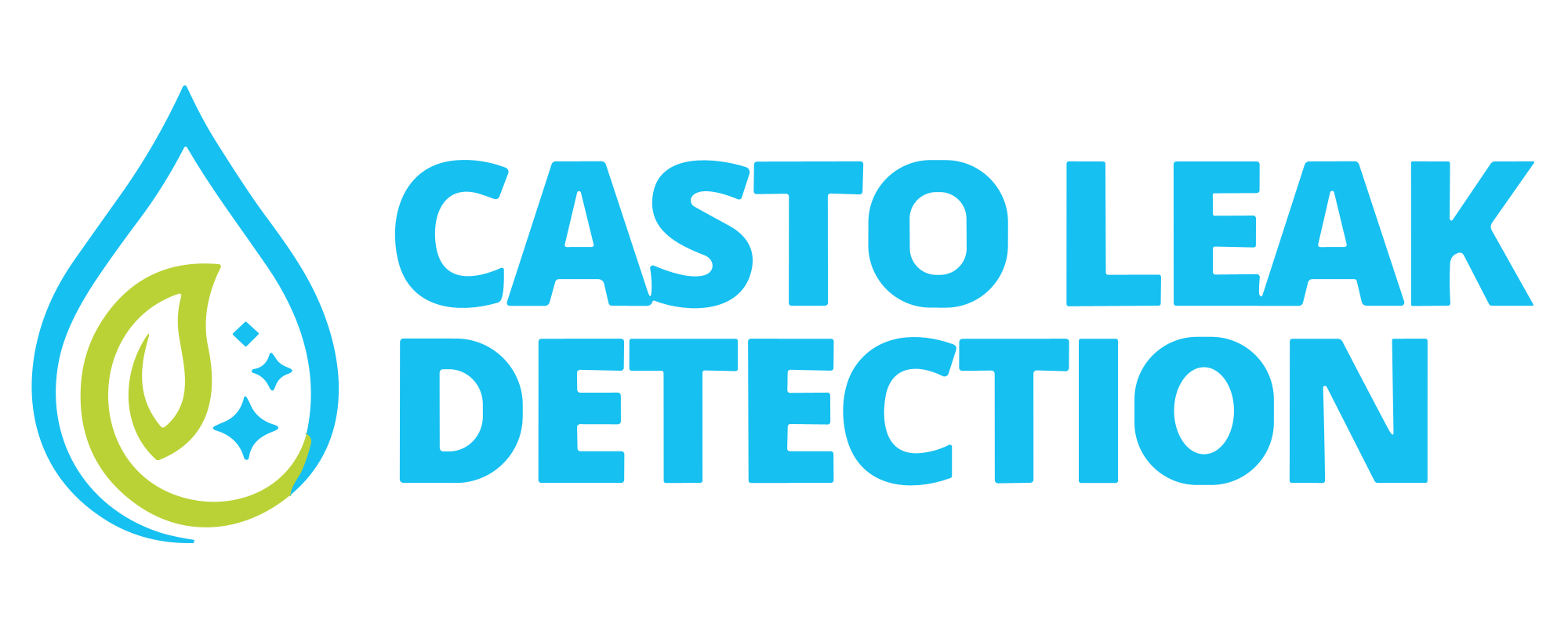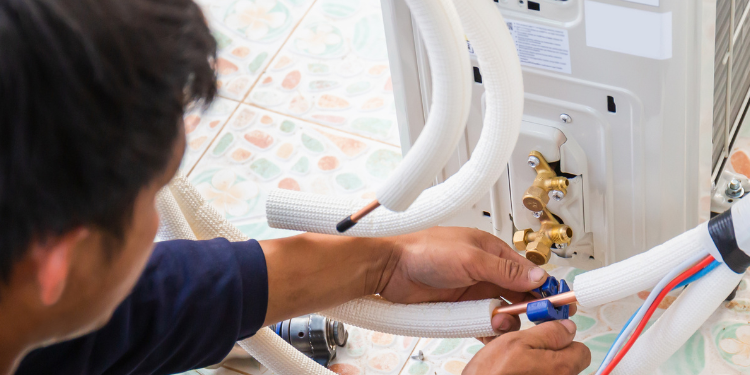Air conditioning is a crucial part of staying comfortable during hot Texas summers, especially in areas like Richardson, Allen, and Frisco. But when you notice water leaking from your A/C unit, it can be alarming. A water leak may seem like a small issue, but if left untreated, it can cause major damage to your home and lead to costly repairs. Understanding why your A/C is leaking and how to fix it is key to preventing further issues.
If you’re dealing with a leak from your air conditioning unit in Plano or North Dallas, this guide will help you identify common causes and provide actionable solutions.
Key Takeaway: Water leaking from your A/C is often caused by a clogged drain line, frozen evaporator coils, or improper installation. Fixing these issues promptly will help avoid damage and maintain the efficiency of your cooling system.
Common Causes of A/C Water Leaks
Clogged Drain Line
When your air conditioning unit cools the air in your home, it also removes moisture. This moisture is collected in a drip pan and drained outside through a condensate drain line. If this line becomes clogged with dirt, mold, or debris, water can back up and leak into your home.
Frozen Evaporator Coils
A frozen evaporator coil can also be a culprit. If the coils inside your unit freeze, it can prevent proper airflow, leading to condensation buildup that eventually leaks out. Several factors can cause frozen coils, including low refrigerant levels and restricted airflow due to a dirty air filter.
Improper Installation
Improperly installed air conditioning units may have drainage issues. If your system is not level or the drain pan is misaligned, water can overflow from the pan and leak into your home.
How to Fix a Water Leak from Your A/C
Clearing the Drain Line
To clear a clogged drain line, start by turning off your A/C unit. Locate the drain line (typically a PVC pipe) and use a wet/dry vacuum to suck out the clog. Regular maintenance, including cleaning the drain line, can prevent future clogs. You can also add a small amount of bleach or vinegar to the line to kill mold and algae that can cause blockages.
Addressing Frozen Evaporator Coils
If you suspect your evaporator coils are frozen, turn off the A/C and allow the ice to thaw. Replace dirty air filters regularly to ensure proper airflow, and check refrigerant levels to maintain efficiency. If the problem persists, you may need to contact a professional for leak detection and repair, especially in areas like Addison or Lake Highland.
Correcting Installation Issues
If improper installation is causing water leaks, you’ll need a trained technician to inspect and correct the problem. Ensuring your unit is level and the drain pan is positioned correctly will resolve drainage issues. Casto Leak Detection can help identify installation errors and offer reliable solutions. Learn more about our team of experts here.
Preventing Future A/C Water Leaks
Regular Maintenance
Preventative maintenance is essential to keep your A/C running efficiently and prevent leaks. Schedule yearly inspections, clean the coils and air filters, and check the drain line for clogs.
Replacing Old Units
Older air conditioning units may be more prone to leaks due to wear and tear. If your A/C is over ten years old, consider replacing it with a new, energy-efficient model to prevent frequent breakdowns and leaks.
Monitoring Your Unit
Keep an eye on your A/C during peak use in the summer months. If you notice water pooling near the unit, investigate immediately. Early detection of leaks can save you from costly water damage and repairs.
Answering Common Questions
Why is my A/C leaking water inside my house?
Your A/C may be leaking inside your house due to a clogged drain line or a frozen evaporator coil. It’s essential to turn off the unit and clear any blockages to prevent further damage.
Can I fix an A/C leak myself?
Yes, some leaks can be fixed by clearing the drain line or replacing air filters. However, for more complex issues such as refrigerant leaks or improper installation, it’s best to contact a professional in Garland or Wylie for assistance.
How often should I schedule maintenance for my A/C?
Regular maintenance should be scheduled once a year. This includes cleaning the coils, replacing air filters, and checking for leaks to keep your unit functioning efficiently.
The Importance of Professional Help
Water leaks from your A/C can lead to serious water damage if not addressed promptly. It’s important to call a professional if you’re unsure of the cause of the leak or if the problem persists. At Casto Leak Detection, we specialize in identifying and fixing leaks, including those related to your air conditioning system. Our team serves the Richardson and Frisco areas, ensuring your home stays cool and safe from water damage.
Factors Leading to Frequent A/C Leaks
Frequent leaks can be caused by improper maintenance, old or faulty equipment, or poor installation. Areas like Rowlett and Sachse often experience high humidity, which can put additional strain on your A/C’s drainage system. Keeping up with routine checks will reduce the risk of leaks.
The Role of Proper Maintenance
Routine inspections, cleaning, and filter replacement can dramatically decrease the chance of an A/C water leak. Simple measures, like keeping your unit free of debris and ensuring proper drainage, go a long way in preventing costly repairs.
Why You Should Contact a Professional
Dealing with A/C leaks can be tricky, especially if you’re not sure what’s causing the problem. Casto Leak Detection offers comprehensive leak detection services across North Dallas and surrounding areas, ensuring that your A/C unit runs smoothly year-round. If you need expert help, don’t hesitate to reach out. Learn more about our leak detection services here.
Resources for Further Reading:







